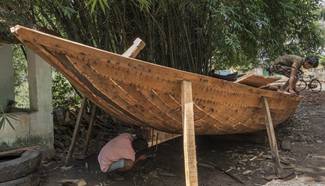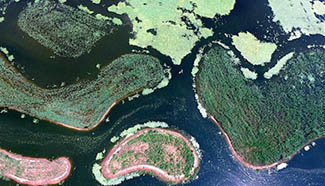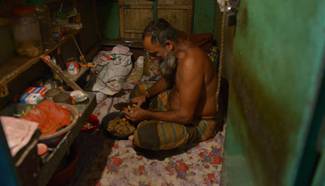DAR ES SALAAM, June 19 (Xinhua) -- A strange disease in central Tanzania has killed seven people and 14 others have been admitted to hospitals for treatment, the east African nation's Minister for Health Ummy Mwalimu said Sunday.
Mwalimu said the disease has hit Chmela and Kondoa districts in the country's central region of Dodoma, wreaking havoc to residents in the areas.
"The government came to know about the disease on June 13 through the office of the chief medical officer for Dodoma region," she told a news conference.
The minister said it started with nine members of a single family at Mwaikisabe village in Chemba district who reportedly fell sick after eating beef which was sourced from a cow that was slaughtered after one of its legs got broken in an unknown circumstances.
However, some of the people who also ate the very same beef were alive and kicking, forcing the government to cast its net wider in the endeavor to examine what the disease could be and its likely causes.
Mwalimu said other patients from villages of Soya, Itolwa, Kelema balai, Gubali, Chemka, Kintima and Ilesi in Chemba district and one from Ubembeni in Kondoa were reported to be experiencing similar health conditions.
"The patients show symptoms of vomiting and running stomachs. Their eyes and other body parts also turn yellow," said Mwalimu.
She added that the victims also showed to be feeling pain in the stomach and in a short time, the stomachs got filled with water.
Preliminary investigations have shown that the disease was not yellow fever but medical experts were also examining the possibility of it being Rift Valley Fever.
The chief medical officer for Dodoma region, James Kiologwe, shared Mwalimu's sentiments, suggesting that the disease could have been a result of aflatoxins.
Aflatoxins are toxic metabolites produced by certain fungi in/on foods and feeds. Aflatoxins have been associated with various diseases, such as aflatoxicosis, in livestock, domestic animals and humans throughout the world.
This could basically be a result of storing grains in poor conditions but all in all, everything will be known when we complete a thorough examination on the patients and the samples collected from their vomits, stool and others," said Kiologwe.
The minister said the government has formed a team of experts to establish what caused the deaths.
She said the teams comprised of experts from the Muhimbili National Hospital, the government chief chemist, Tanzania Food and Drugs Authority (TFDA) and their counterparts from the Ministry of Agriculture, Fisheries and Livestock Development as well as others from the Prime Minister's Office - Regional Administration and Local Government Authorities.
She said the government was also working hand in hand with the World Health Organisation and the Centre for Disease Control in trying to arrive at the right conclusion regarding the disease.
"Our goal is to ensure that we identify the type of disease that is affecting our people as soon as possible so we can take appropriate medical remedies," said Mwalimu.










